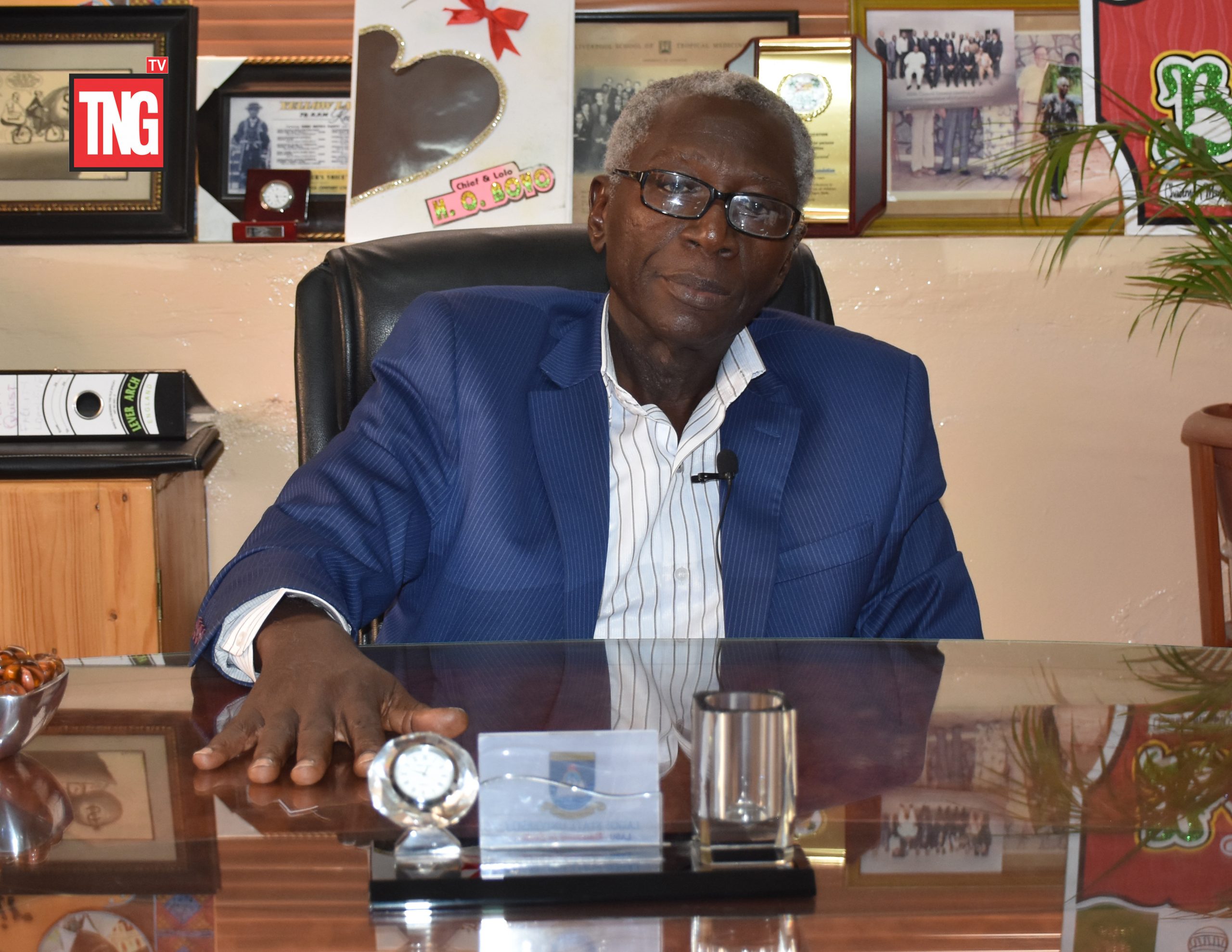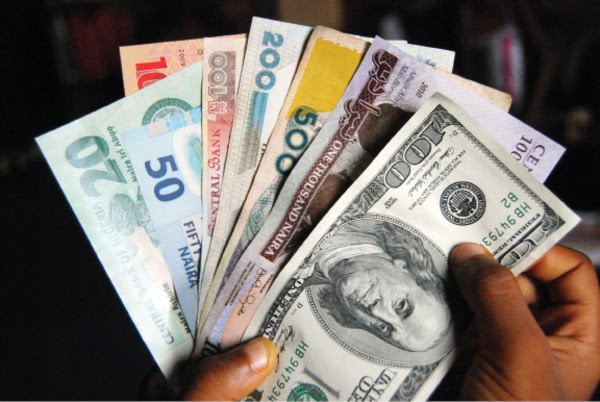By Henry Boyo
“AS I speak to you, our external reserves stand above $31bn and that provides us with enough fire power to be able to defend the Naira (N305=$1)” (Godwin Emefiele CBN Governor, April 25th, 2017).
However, fast forward to January 2018 with reserves above $40bn, i.e over 30% increase since April 2017, with reduction, also in exchange outflows from the ban of imports of non essentials, the naira inexplicably remains between N305-360=$1. Governor, Central Bank of Nigeria (CBN), Mr Godwin Emefiele The question, therefore is: “Is CBN actually defending the Naira?” The above title, was first published in Punch and Vanguard Newspapers on 12th January, 2015.
A summary follows hereafter: “Evidently, the serial devaluation from stronger than N1=$1 to an abysmal low of about N70=$1, at that time, was probably, the most significant instigator of the oppressive economic challenges, induced by, the IMF imposed Structural Adjustment Programme’ (SAP).
Nigeria’s once pulsating industrial base gradually became almost silent. The oppressive Naira devaluation reduced wages to ‘peanut’ value; consequently, the ‘check out’ syndrome became fashionable, as, well heeled professionals, and technocrats sought greener pastures abroad, in order to maintain the accustomed dignity in their lifestyles.
Sadly, the impact of the near fatal blows from SAP has truncated our development till this day, and Nigeria is now listed as one of the world’s poorest nations. Inexplicably, despite exceptionally high crude oil prices, around $140/barrel, a while back, with the attendant bountiful dollar reserves accumulated, the economy continued to falter.
Ironically, rising dollar reserves, and extended payments cover for our imports, have even fostered weaker Naira exchange rates, such that one wondered if less reserves would in contrast, unexpectedly induce a stronger Naira!
However, the reduction in revenue, when crude oil prices later fell below $60/barrel, undeniably, however constituted another onslaught on the Naira exchange rate and inclusive economic growth and employment.
Thus, in our quest for a socially and industrially supportive exchange rate, we find ourselves in a bizarre twist of “heads or tails”, we lose. Indeed, as with SAP, the embedded role of IMF technocrats in the management of our economy, also fostered the unfortunate notion that Naira rate is overvalued, even when we had best ever foreign reserves above $60bn and largely extended imports payments cover.
Regrettably, government economic blueprints, such as NEEDS, were predicated on this obtuse mindset, that if the economy is not diversified fortuitously rising bountiful reserves, will neither induce, a stronger Naira nor growth.
Well, today (2015), the Naira exchange rate is close to the N180=$1 projected to induce economic diversification and growth in the NEEDS blueprint, but sadly, catalytic lower rates of inflation, and cost of borrowing, with exchange rate stability which should drive inclusive growth, still remain unattainable. Certainly, no economy can perform creditably, when cost of funds, to real sector remains over 20%, while stable consumer demand, remains severely constrained with annual inflation rates of 8-12%, while Naira exchange rate, is also sliding nearer N200=$1, despite increasing dollar revenue and extended payments cover.
Furthermore, it is clearly, financially reckless management, for any government to readily pay over N600bn as annual interest, on funds borrowed, but simply sterilized from use, despite the acute shortage of the cheap funds, required to drive real sector growth.
Sadly, CBN and our Economic Management Teams have never been able to construct an appropriate growth model which supports low cost of funds (i.e. 3-6%), low inflation rate (1-3%), with a non-monopolistic and, open forex market that will drive the elusive quest for economic diversification and inclusive growth.
Nonetheless, politicians, critics, and the general public are again united in singing the chorus of economic diversification, while under the illusion that El-Dorado will be attained by simply throwing billions of Naira as intervention funds at various economic sub-sectors. Indeed, in an economy with a burdensome, abiding problem of stupendously surplus Naira, such intervention funds, regrettably, simply compound the existing problem of inflation, which systemic surplus Naira sustains.
Ultimately, the presence of such surplus funds, would instigate another kind of intervention, which compels CBN to increase its own borrowing, despite having to pay excruciatingly high and destabilising interest rates, which crowd out the real sector, from access to cheaper loanable funds, that are necessary to drive lower inflation rates and boost economic growth with increasing job opportunities.
Clearly, the inexplicable burden of eternally surplus Naira is actually the major obstacle to achieving best practice supportive indices, required to grow and diversify the economy. Systemic surplus Naira supply is, clearly also, responsible for weaker Naira exchange rates, as CBN’s weekly auctions of modest dollar rations, are pitched, in a market, with excess Naira supply, which invariably creates an imbalance in favour of the dollar!
Clearly, Nigerians do not interrogate the process through which CBN consolidates its so called “own reserves”! Indeed, CBN’s strategy of creating fresh Naira values, everytime it substitutes Naira budgetary allocations, for dollar denominated revenue, undeniably, induces a market imbalance of Naira surplus, chasing much smaller dollar rations; consequently, with this arrangement, CBN ironically becomes a stronger defender of the dollar, rather than the Naira exchange rate!
Thus, the higher the dollar revenue from rising crude prices and output, the greater also would be the fresh supply of Naira that CBN would create and place in the economy as Naira substitute allocations, for the actual dollar income it earlier captured. Thus, whenever we celebrate CBN’s rising dollar reserves, we must recognise that the process of accumulating such reserves, is unfortunately, distortional, primitive and retrogressive, as it creates a paradigm of, the larger the reserves, the greater also is Naira liquidity, and the harsher and more counter-productive also, would ultimately be CBN’s monetary control measures to ironically reduce Naira supply, and restrain liberal lending and hopelessly, contain inflation, despite the harsh economic and social consequences of these measures.
Thus, it is ironical that the CBN which instigates a market disequilibrium in favour of the dollar when it substitutes fresh Naira values for dollar denominated revenue, should later turn round, in seeming defence of the Naira exchange rate, to auction small rations of dollars in the same market, which the same CBN, had earlier inundated with excess Naira supply; unfortunately such a market imbalance will invariably always precipitate weaker Naira exchange rates, which will invariably increase fuel price, regardless of crude price and output.
Surely, the adoption of dollar certificates for government allocations of dollar denominated revenue will eliminate or critically reduce the burden of excess Naira liquidity and therefore give the Naira a fighting chance against the dollar in the forex market.”
Save the Naira, Save Nigerians!!


